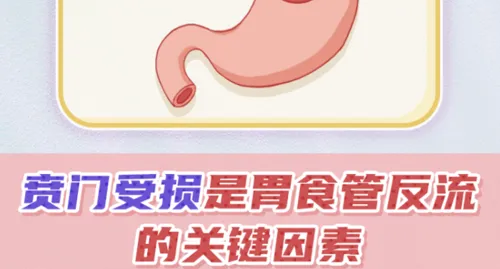Is children's autumn winter diarrhea always caused by colds?

Author: Zhang Liya, Deputy Chief Physician, Affiliated Women's and Children's Hospital of Ningbo University.
Reviewer: Chen Zheng, Chief Physician at the Children's Hospital of Zhejiang University.
The autumn and winter seasons are peak times for childhood diarrhea, and many infants face this issue during this period. Parents often believe that diarrhea is primarily caused by exposure to cold; however, the reality is more complex. This article will provide an in-depth examination of the causes of diarrhea in children during the autumn and winter seasons, along with recommended preventive measures.
Figure 1. Copyrighted image. Unauthorized reproduction is not permitted.
1. The Connection between Colds and Diarrhea
Seasonal weather changes are indeed a significant factor contributing to diarrhea in young children during the autumn and winter months. As temperatures drop, children's immunity tends to be weaker, making them more susceptible to cold stimuli that can impair intestinal function, leading to diarrhea. Furthermore, exposure to cold can create an internal imbalance, making the gastrointestinal tract more vulnerable to damage and disrupting microbial equilibrium, which may further compromise digestive function.
Nevertheless, catching a cold is not the sole reason for diarrhea in children. In fact, inappropriate dietary choices are also a common contributor. During the autumn and winter seasons, dietary habits often shift, with increased consumption of greasy, spicy, or raw and cold foods, as well as unclean or spoiled food, all of which can provoke diarrhea.
2. Diarrhea Resulting from Poor Dietary Choices
In the autumn and winter seasons, many families alter their dietary patterns by increasing the intake of high-calorie and high-fat foods. However, these food types are often difficult to digest and can place excessive strain on a child's intestinal system. Inadequately cooked or improperly stored food can harbor bacteria and viruses, leading to infectious diarrhea.
Moreover, food allergies are another prevalent cause of diarrhea. Some infants may be allergic to specific foods, and consumption of these can trigger an immune response, resulting in intestinal inflammation and diarrhea.
Therefore, during the autumn and winter months, parents must be particularly attentive to their children's dietary safety and the appropriate combination of foods, ensuring that meals are fresh and hygienic, while avoiding excessive consumption of spicy or known allergenic foods.
Viral Infections and Diarrhea
Another crucial cause of diarrhea in children during the autumn and winter months is viral infection, with rotavirus as the most common culprit. Rotavirus is spread via the fecal-oral route and can also be transmitted through respiratory droplets. Once infected, it may cause acute enteritis, which can manifest as vomiting, diarrhea, and fever.
Typically, there is no specific treatment for rotavirus diarrhea, which underscores the importance of preventive measures. In addition to ensuring warmth and a balanced diet, parents should also consider vaccinating their children against rotavirus. This vaccine mimics the natural infection process and stimulates the body to develop immunity against rotavirus, thereby effectively preventing diarrhea.
Figure 2 - Copyrighted image, unauthorized reproduction is prohibited.
4. Other Causes of Diarrhea
In addition to colds, inappropriate diets, and viral infections, other potential causes of diarrhea in children include underdeveloped intestinal function, which can lead to digestive disturbances. Additionally, intestinal infections, parasitic infestations, and improper use of antibiotics may also contribute to diarrhea.
5. Preventive Measures for Diarrhea.
To reduce the risk of diarrhea in children during the autumn and winter months, parents can implement the following strategies:
1. Keep Warm.
As temperatures decrease during the autumn and winter, it is critical to ensure that infants are adequately dressed, especially paying attention to keeping their abdomen warm to prevent cold stimuli to the gastrointestinal tract.
2. Balanced Nutrition
Ensure that all food offered is fresh and hygienic, steering clear of raw, spoiled, or irritating foods. During autumn and winter, while it may be appropriate to increase protein and fat intake for children, it is essential to ensure that the food remains easily digestible.
3. Vaccination
The rotavirus vaccine is an effective strategy for preventing diarrhea in children. Vaccination should be carried out following the recommended immunization schedule to mitigate the risk of infectious diarrhea.
4. Promote Good Hygiene Practices.
Fostering good personal hygiene habits in infants is crucial, including regular hand washing and minimizing contact with public surfaces. Additionally, parents must maintain their own hygiene by ensuring they clean their hands prior to interacting with their child after returning home.
5. Strengthen Overall Health.
Participating in outdoor activities, such as walking or jogging, can help enhance the child's immune system.
6. Care and Management of Diarrhea.
When a child displays symptoms of diarrhea, parents should take prompt and scientifically informed measures while accurately identifying any situations necessitating medical attention:
1. Prevent Dehydration.
Diarrhea can quickly lead to fluid and electrolyte loss in infants, therefore parents should replenish their child's fluids and electrolytes promptly. Offering the child electrolyte solutions or oral rehydration solutions can help prevent dehydration. Immediate medical attention should be sought if signs of dehydration, such as reduced urination, dry lips, or absence of tears during crying, present.
2. Adjust Dietary Intake Accordingly.
During diarrhea, it is advisable to provide light and easily digestible foods, such as rice porridge and noodles. It is also advisable to avoid greasy, spicy, and raw or cold foods to minimize the strain on the intestines.
3. Use Medications Responsibly.
If the diarrhea is severe or does not improve after some time, it is critical to bring the child to a healthcare professional. The doctor may prescribe appropriate treatment options, such as probiotics or montmorillonite powder, to help regulate gut flora and reduce diarrhea.
4. Maintain Hygiene Standards.
During episodes of diarrhea, attention to personal hygiene as well as dietary hygiene is essential. Regular disinfection of the child’s utensils, toys, and other belongings is necessary to inhibit the spread of pathogens.
The causes of diarrhea in children during the autumn and winter months are varied, with cold exposure being just one aspect. To prevent diarrhea, parents should adopt a comprehensive approach, including keeping warm, ensuring a balanced diet, obtaining vaccinations, promoting hygiene, and supporting physical health. When diarrhea occurs, treatment should focus on rehydration and dietary adjustments while carefully monitoring the child’s condition. Prompt medical consultation should be sought when necessary to avoid delays in treatment.
© 2025 Health Tribe.


